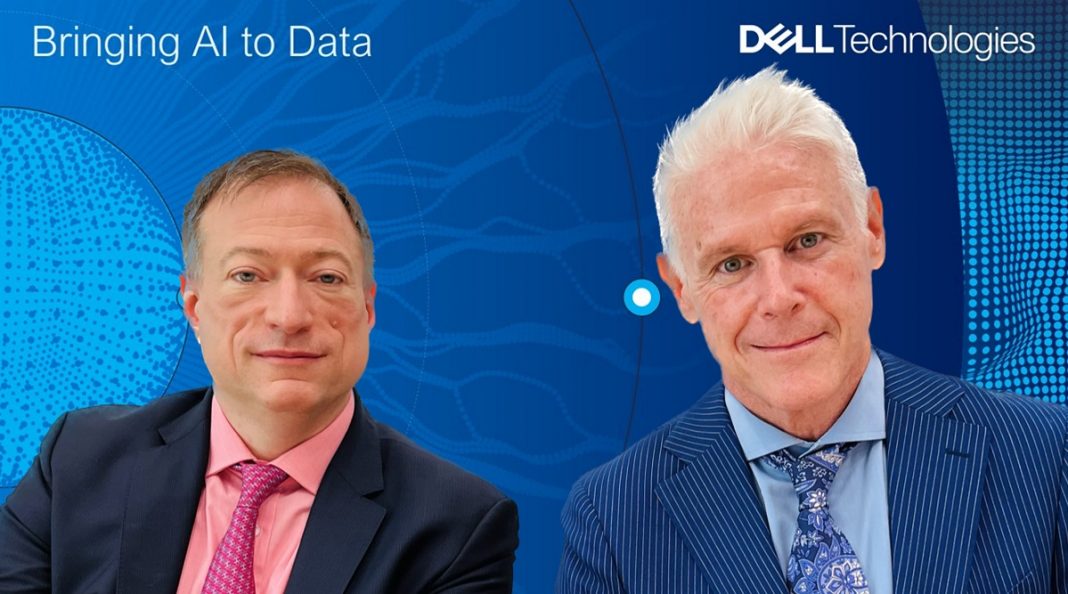Motivated by the recent accessibility of public generative artificial intelligence (AI) apps, corporations in Asia Pacific and Japan (APJ) corporations are exploring how they can incorporate this technology into their operations.
In fact, according to market intelligence Firm IDC, businesses in the region are expected to spend $55 billion on AI systems by 2026.
US tech giant Dell Technologies believes that one of the best ways companies can utilize AI to gain a competitive advantage is to customize one for their needs.
The company held a virtual media briefing last Oct. 12 to discuss the current AI use cases in APJ and their four-pronged strategy to help APJ companies leverage the AI boom through private generative AI.
As opposed to well-known public generative AI apps like OpenAI’s ChatGPT or Google’s Bard, private generative AI are not trained on massive amounts of publicly available data.
Instead, private AIs are trained on data the company owns or licenses, enabling organizations to have access to generative AI with greater understanding of their business without exposing themselves to data privacy risks.
“We are not trying to build a public, open AI,” confirmed John Roese, Dell’s global chief technology officer. “We are focused on what we would call private generative AI solutions where an enterprise actually wants to apply this technology to their trade secrets, to their proprietary information, to the core pieces of their business. What we know is that the best, easiest, and safest place to do that is in a system that they own and operate.”
While Roese noted that ready-made AI solutions could work for general businesses processes, he maintains that private generative AIs can help a company stand out among its rivals.
“There’s this question of ‘What is the core of your business that if you apply AI to it, it would create a sustainable, differential, over any of your competitors by making that process faster, better and smarter?’ And that is the place where you would actually apply the resources to build or train or optimize a model that is unique to your company,” Roese stated.
But where can this type of AI be used? In APJ, Dell reported clients seeking them out for varied reasons, such as initial pilots and inferencing requirements as well as to build localized Large Language Models (LLMs) for native languages in the region.
Dell also mentioned that new service providers are consulting with them to build out their GPUaaS offerings, which enable organizations to access computing power without the hassle of maintaining the physical GPU.
Moreover, based on what they are seeing from specific use cases among their clients, Dell determined that generative AI has numerous applications across industries.
For instance, CyberAgent, a Japanese digital advertising company, utilizes Dell infrastructure to power its generative AI development for digital marketing.
Other companies such as a telecom provider and multinational manufacturing conglomerate are developing in-house generative AI for research and development on Dell servers.
Lastly, an international bank has already launched a generative AI chatbot running on Dell servers for operations efficiency, relationship management, and customer service tasks.
“It’s not just one segment of the market,” summed up Peter Marrs, Dell’s president for APJ. “We’re seeing it across governments, banks, advertising, telcos, Web tech, manufacturing, and clearly a lot, lot more. We have $2 million of backlog [projects from our clients] and that’s across lots of different use cases and lots of different customers.”
To enable these diverse use cases, Dell is employing its generative AI strategy named “AI-In, AI-On, AI-For, and AI-With” that showcases the expertise and resources Dell offers to its clients.
In a nutshell, this strategy covers how AI is built into Dell products and solutions to support customers in every step of their generative AI journey, how Dell provides the infrastructure to deploy, build, and run AI workloads, and how Dell has formed partnerships to provide their clients with the expertise to develop AI solutions.
“Our job is to make it easy for our customer to apply generative AI directly into enterprise processes and core data sets by pulling the ecosystem together, delivering the platforms, and being a strategic partner to them,” Roese concluded.




